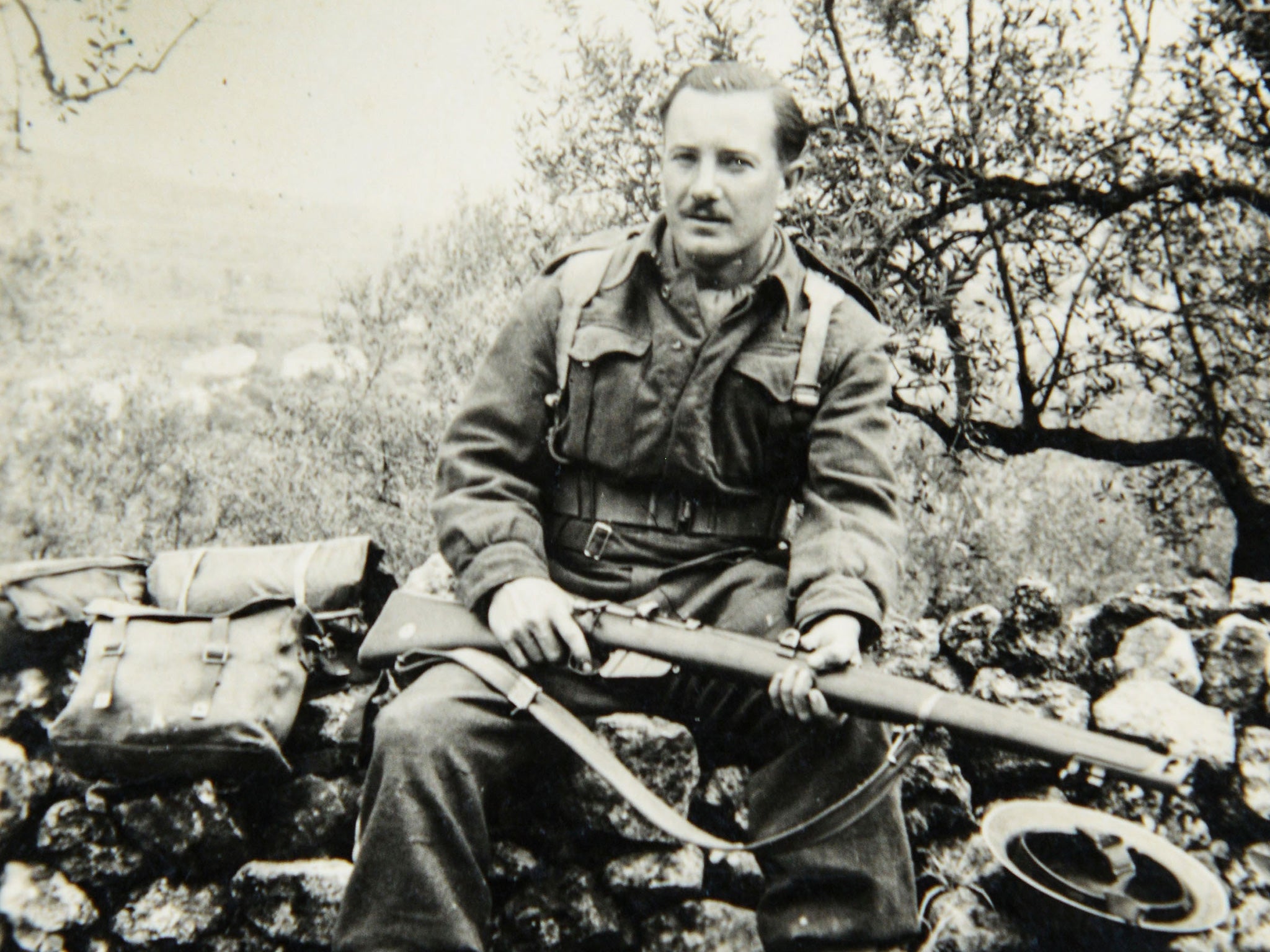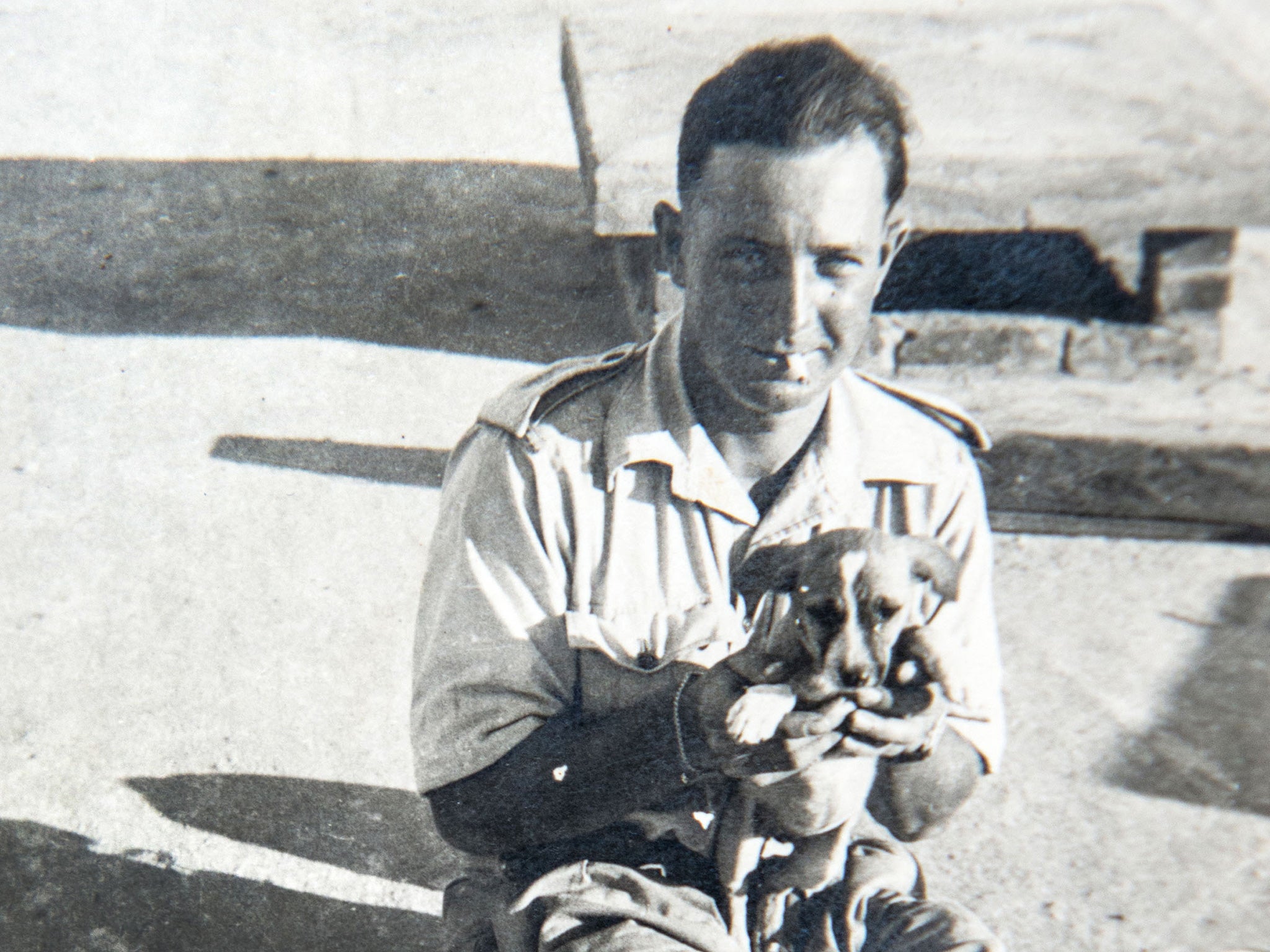Robert Spencer: Meeting Britain's oldest surviving prisoner of war
After reading about a 97-year-old Nazi death march survivor, Robert Spencer, 99, decided to break his silence

Robert Spencer has a German bullet lodged in his chest, dodged Stuka dive bombers on Crete in 1941 and spent the next five years as a prisoner of war, where he talked a Nazi officer out of machine gunning his pals and endured a gruesome Death March across the crumbling ruins of the Third Reich.
He even made a daring bid for freedom in the last days of the war, but the 99-year-old veteran doesn’t like to boast.
In fact, the former anti-aircraft gunner, who will receive a congratulatory message from the Queen in November when he turns 100, has rarely spoken about his remarkable wartime experiences, which saw him serve in the disastrous Norwegian campaign before escaping on a submarine. He was then shipped out to Egypt to defend against Luftwaffe attacks before becoming a POW on Crete in 1941 when his unit was overwhelmed by a daring German paratroop assault.
This weekend though, Mr Spencer has broken his silence after the publication in The Independent of the tale of fellow veteran Robbie Clark, who at 97-years-old was, until Mr Spencer spoke out, thought to be oldest surviving prisoner of war and oldest Death March survivor.

“Thousands of us lads were marching across Europe as Germany fell apart in 1945,” he said, speaking at his home in Swansea where he still lives independently with Phyllis, his wife of 69 years. “I’m 100 in November, but that’s not special. I wouldn’t be surprised if there are older chaps than me out there who survived the marches. It would be wonderful if they came forward.”
Mr Spencer, who was still driving until last month and uses a computer to help his son with his VAT returns, decided to share his story after his daughter Laura Stratton, a regular Independent reader, saw the article on Mr Clarke last week and wanted to set the record straight. “I didn’t want to weaken Mr Clarke’s story at all,” she said. “It’s just important we hear all these stories.”
For his part, Mr Spencer has always been unwilling to share the details of his capture and captivity, but in recent months he has started to writing his memoirs and collecting together his wartime diary and memories, including a old POW currency and a crumbling Allied propaganda newspaper announcing the D-Day landings.
After his capture in Crete in 1941 he was moved across Hitler’s prison empire, spending time in Stalag VII-A near Moosburg, where the sign over the entrance read “Abandon hope all ye who enter here” and a hard-labour camp near the River Oder in Poland.

It was in January 1945 as the war drew to a close that he was told to dig the graves of two German civilians before joining one of Hitler’s Death Marches. “We’d got good at digging graves by then,” he said. “We’d already lost a lot of chaps.”
The death march were a forced march across Europe for tens of thousands of British and Allied POWs in the most terrible and brutal conditions. The marches, Hitler’s last desperate attempt to keep his prisoners, concentration camp victims and slave labourers out of Allied hands, cost thousands of lives to the cold and the executioner's bullet.
“My whole family know I have one slogan and that’s that I will never give up. It comes from that fact that during the march I got dysentery and was in the hell of a state,” said Mr Spencer, who walked for 137 days in up to 12-inches of snow. “At one point I collapsed to the ground, but my mate Arthur Smith, who was with me since I was captured in Crete, said to me I had to get up and carry on. He stood there and swore and kicked me till I did. That’s why I will never give up.”
The reason his friend Arthur was so keen to get Mr Spencer moving was that three German guards followed their column to execute any British soldiers who fell behind. “Without my pal Arthur, that would have been me.”
Robert and Arthur marched through “thousands of miles” through Germany during which they had not only to contend with their guards, but also the RAF which occasionally strafed the column, mistaking it for the Field Grey of the German Army.
By the time they eventually “decided to leave the party” and slipped from his captors to made a break for the American lines - via a detour involved some Russian soldiers, a gruff receptions and several “liberated” bottles of schnapps - Mr Spencer weighed just six and a half stone. Thousands more had perished.
Despite the hardship, he held no grudge against Germany, just memories of hunger, death and sanitary conditions that he joked “would not have been welcome in the Savoy”.
He said: “You have to get on with life, not life in the past. All you need is two good friends,” he said, looking at his wife and clearly remember his friend Arthur, who he lost contact with many years after the war and dearly would like to trace.
The death march was not the only “bad scape” of the war for Mr Spencer though. He narrowly avoided drowning in Poland when in a rare treat guards allowed them a dip in the river Oder, had to negotiate with a trigger-happy German officer after his pals refused to work moving iron ore unless their rations improved and earlier in the war, he had fled the “disastrous” Norwegian campaign by Royal Navy submarine after his unit was overrun. “That’s wasn’t the best campaign for us,” he said. Throughout though he tells his wartime tales in style of a Roald Dahl, relishing his jokes and only pausing occasionally to sip tea to sooth his ageing voice. He weaves from delightful moments of childlike humour, including a monkey “stowaway” on his troopship out to the Middle East, to tragedy as he explain how he “never saw so many men commit suicide” as he awaited capture on Crete in May 1941.
It’s describing his capture that he’s most modest though and it’s left to his son Paul to explain that he was strafed by a Stuka which blew up his radar trailer, killed three of his unit and left a machine gun bullet perilously close to his heart as a bomb smashed his trailer.
Despite his wound and after being bombed out of an aid station, Mr Spencer joined the exodus across the islands, climbing over Crete’s White Mountains, before his was cornered by German soldiers and ushered into five years of captivity.
After the war he returned to his parents in north-west London (he met his wife in 1946) and took up his old job at an insurance firm, but lamented the lack of understanding on the part of those who had remained behind. “One day in late 1945 or 1946 the manager of my branch took me aside along with a couple of other ex-POWs,” he said. “He wanted to know why we weren’t as happy as before the war and why the atmosphere was grim at work. To a man we gave him one answer; we were six years older, had spent those years in captivity and that there had been something of a war on.”
Join our commenting forum
Join thought-provoking conversations, follow other Independent readers and see their replies
Comments
Bookmark popover
Removed from bookmarks